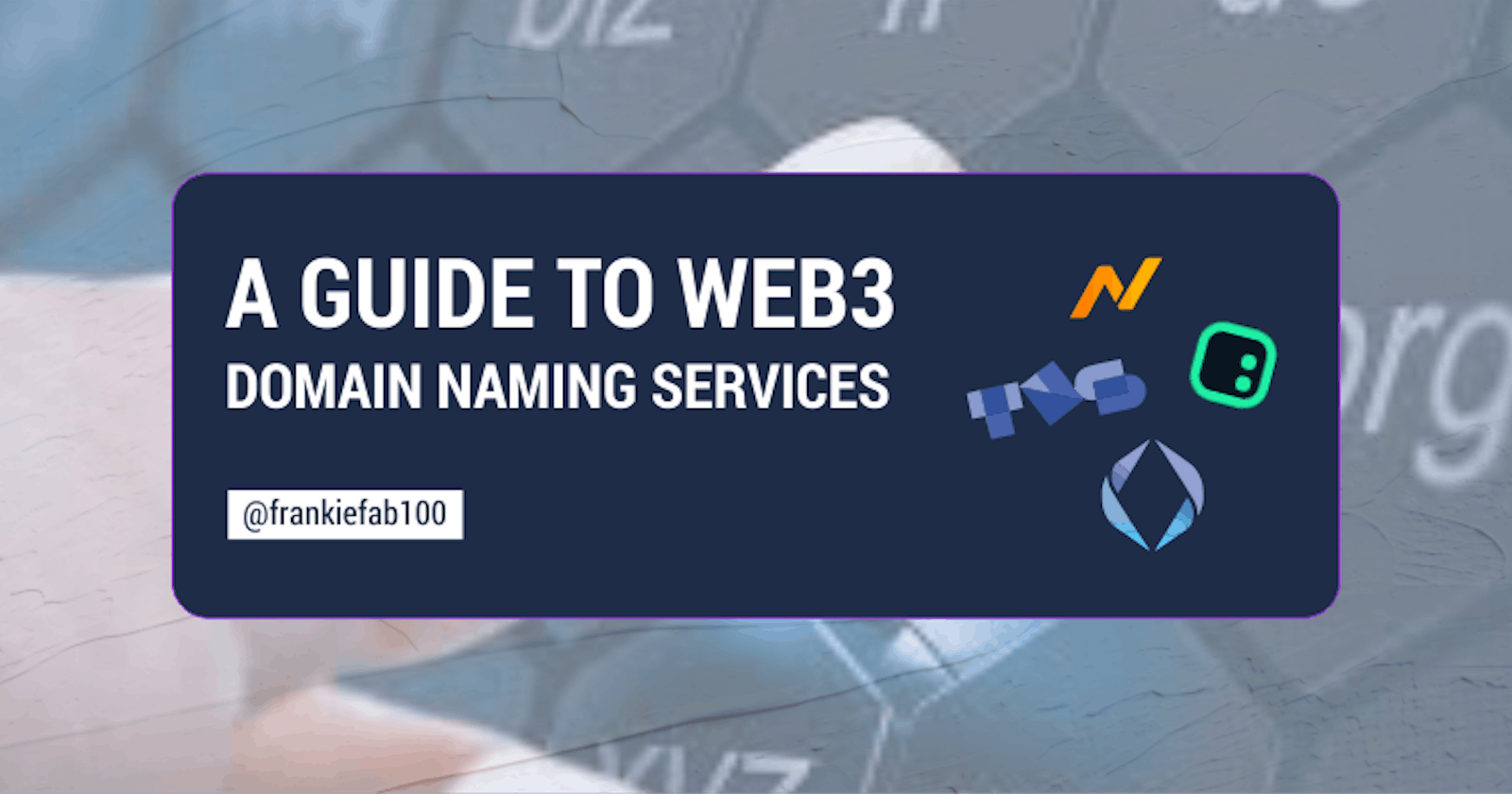A Guide To Web3 Domain Naming Services
An introductory guide to web3 domain naming services, typical examples of domain names, and their relevance.
Until the creation of the domain name system (DNS) in late 1983, webpages could only be accessed through a long string of characters known as Internet Protocol address(IP address) which identifies a device on the internet or a local network.
Blockchain technology has enabled the development of blockchain-based DNS solutions, to replace traditional domain names which are not fully controlled by the users, and are easily taken down by the authorities and registrars.
In this article, we will look at what web3 domain names represent, their purposes, use cases, and also some common web3 domain name services.
What is the Web3 domain name?
Web3 domain names are blockchain-based DNS addresses that allow users to create and manage their own personalized domains. They are addresses representing users' wallets. They are non-fungible tokens (NFTs) or digital certificates that can be traded on NFT marketplaces like OpenSea.
A wallet address comprises a long string of machine-readable identifiers such as 0xd8da6bf26964af9d7eed9e03e53415d37aa96045. A user is liable to misplace a character or exchanged it for another because it is difficult to remember. Web3 domain provides a single unique and memorable identifier that map to the user's wallet addresses.
How web3 domain naming services work
Web3 Domain Name Service converts wallet addresses into human-readable domain extensions such as .eth, .sol, .bnb. It resolves blockchain wallet addresses and keeps track of domain names. Without it, everyone would have to remember random strings of characters to send or receive cryptocurrencies or other digital assets. Whenever you are sending tokens or accessing a crypto address, web3 DNS looks up the domain name associated with the wallet address.
It utilizes smart contracts to keep track of all domain names, owners, and resolvers in a registry. The resolvers translate domain names into wallet addresses and also handle on-chain data such as cryptocurrency addresses, IPFS content hash, user profiles, avatars, etc.
Purpose of web3 domain naming services
Establish digital identities across public addresses.
Translate blockchain wallet addresses to human-readable names.
Use cases of web3 domain
Web3 domains can be used to store files or host websites on a decentralized network.
It helps establish brand credibility or increase awareness of businesses.
To make blockchain transactions easier and more convenient.
Popular web3 domain naming services
Web3 domain name services usually range from a minimum of 3 to a maximum of 64 characters in length. It supports alphanumeric characters (lowercase letters a-z, numbers 0-9) and hyphens (-), and also emojis in some cases.
They can be used to host websites although search engines like Google wouldn't be able to index them since they live on peer-to-peer networks.
1. Ethereum Name Service (ENS)
The Ethereum Name Service provides decentralized naming for wallets ending with (.eth) that resolve to a specific wallet address on the Ethereum blockchain. For example, frankiefab.eth.
This domain enables users to associate their 64-character wallet address with a shorter username and provides support for most DNS names, such as .com, .org, .io, .app, .xyz, .art, and more.
It can be used to launch censorship-resistant and decentralized websites on peer-to-peer storage such as IPFS. It can be transferred or resold as NFTs for profit and also allows you to add personal details such as a bio, email, social handles, and other Ethereum Virtual Machine compatible blockchain networks.
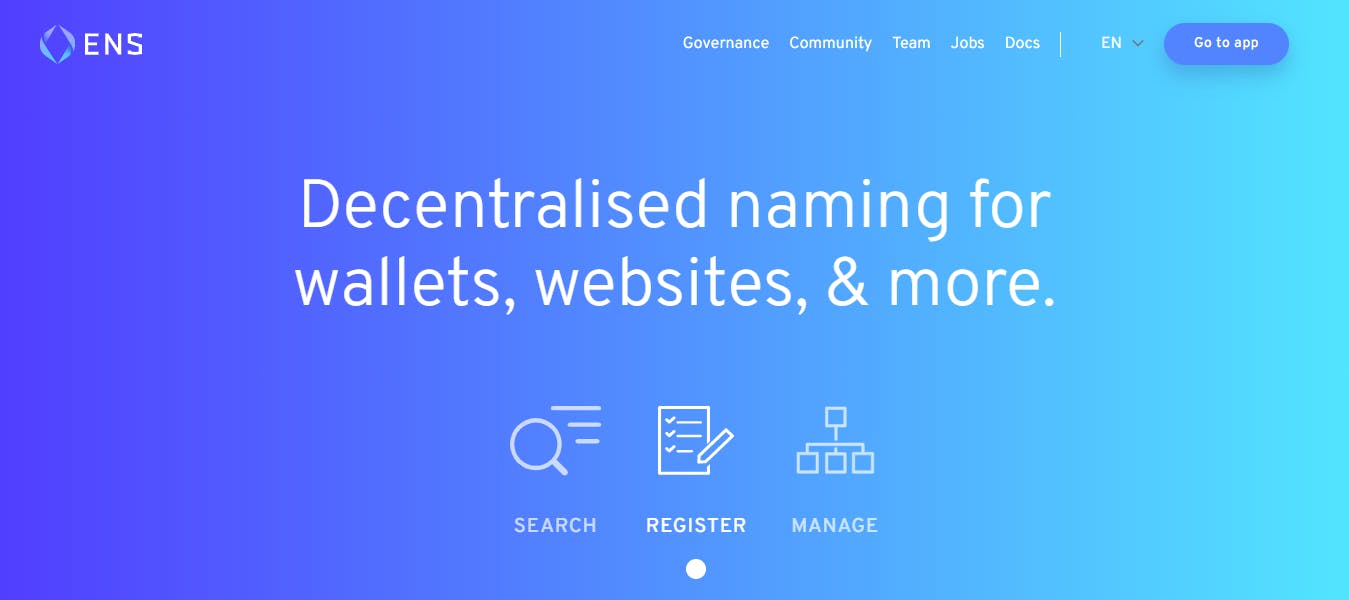
2. Solana Name Service (Bonfida)
Solana Name Service known as Bonfida is a web3 domain name service on the Solana blockchain network that provides human-readable address .sol names. The domain can be traded or exchanged as NFTs and used to send SPL and native SOL tokens directly without worrying about long, unmemorable wallet addresses.
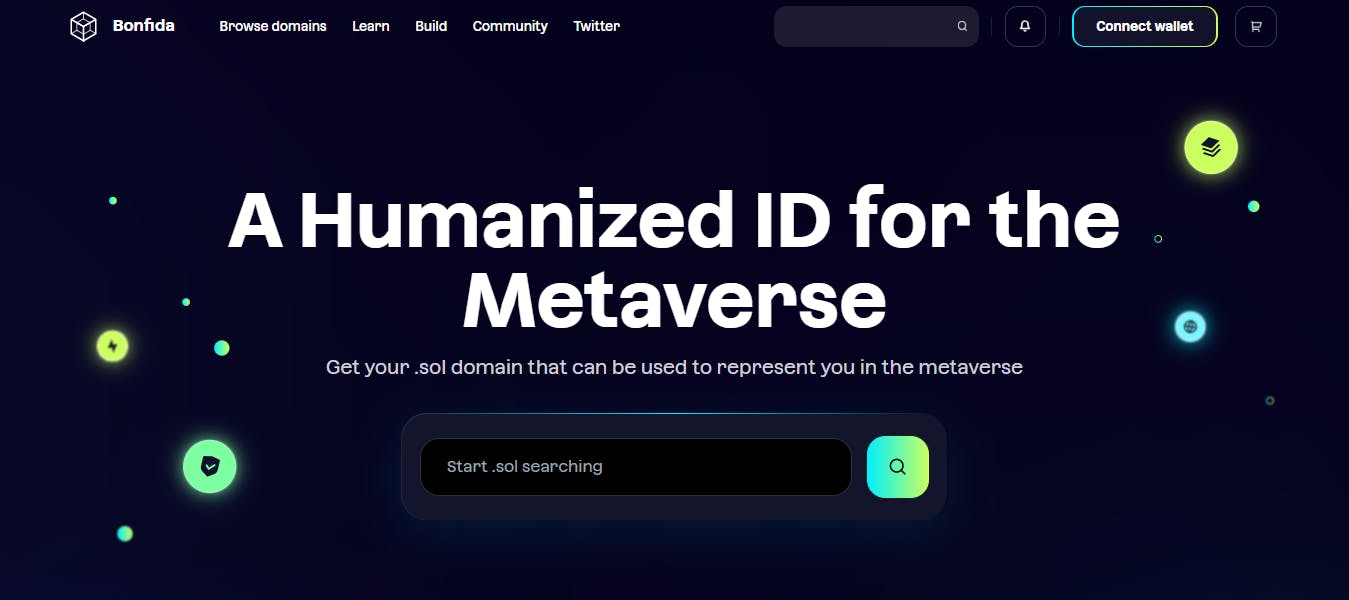
3. Unstoppable Domains (UD)
The Unstoppable domain provides a universal username for a cryptocurrency address that serves as a login to the decentralized web. It is a censorship-resistant and secure web3 domain registry that is managed by smart contracts, and it gives users complete control over their registered domains.
Each domain name is unique, completely owned, and controlled by the owner for life, with no renewal fees required. It offers domain extensions like .crypto, .dao, .nft, .blockchain, .x, .wallet, .bitcoin, .888, and .zil. Over 294 cryptocurrency addresses can be mapped to an Unstoppable domain in order to facilitate easier payments and transactions. It supports major decentralized applications and protocols such as Coinbase, blockchain.com, rainbow wallet, and more.
They are issued as non-fungible ERC-721 tokens (NFTs) that can be stored, traded, or transferred on the blockchain. The domain name is private by default and not tied to the user's personal information.
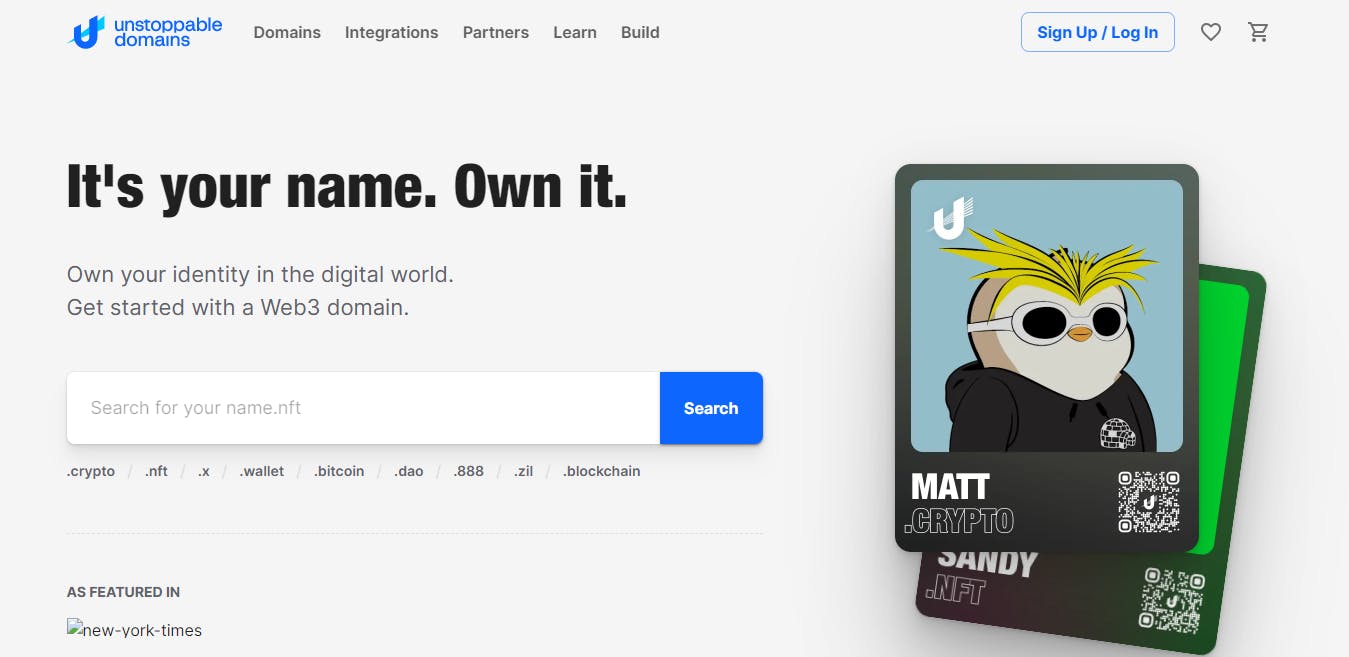
4. NEAR names
The NEAR name is a web3 domain name for wallet addresses on the NEAR blockchain. They can be purchased with the NEAR token and have the domain extension (.near). For example, frankiefab.near.
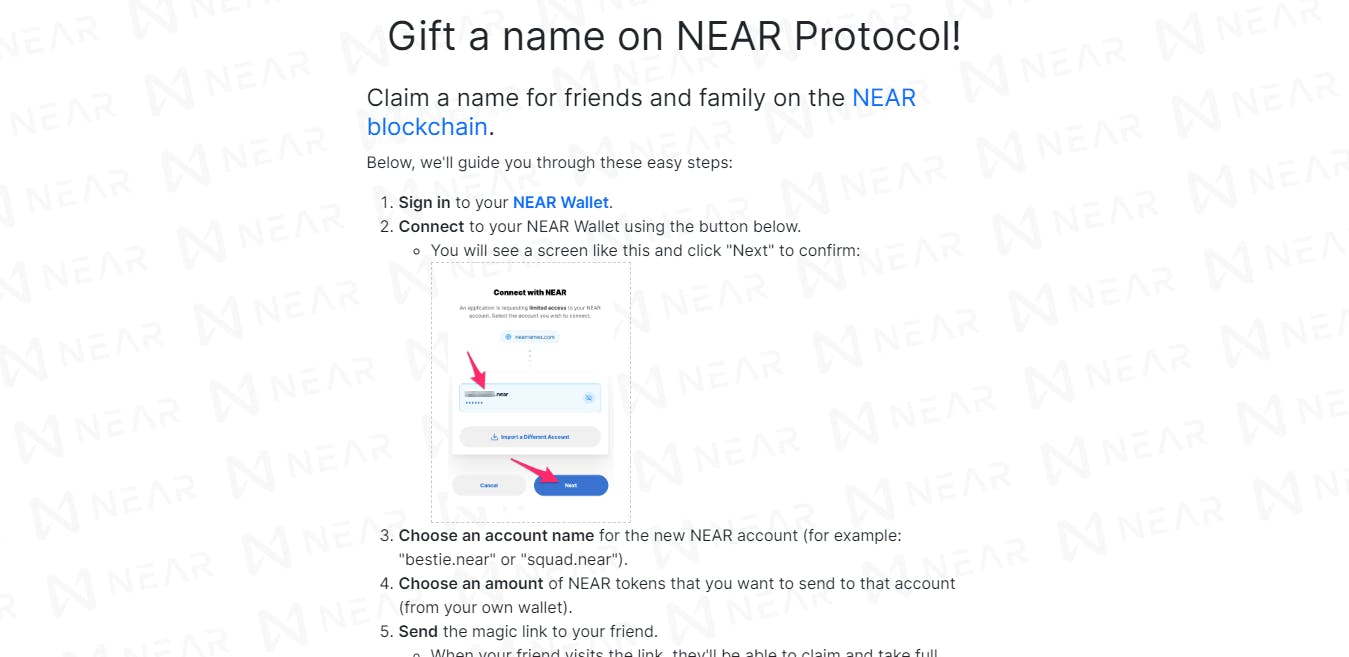
5. Algorand Name Service (ANS)
Algorand Name Service (ANS) is a decentralized and community-driven name service for naming network resources and wallet addresses on Algorand with the (.algo) domain suffix.
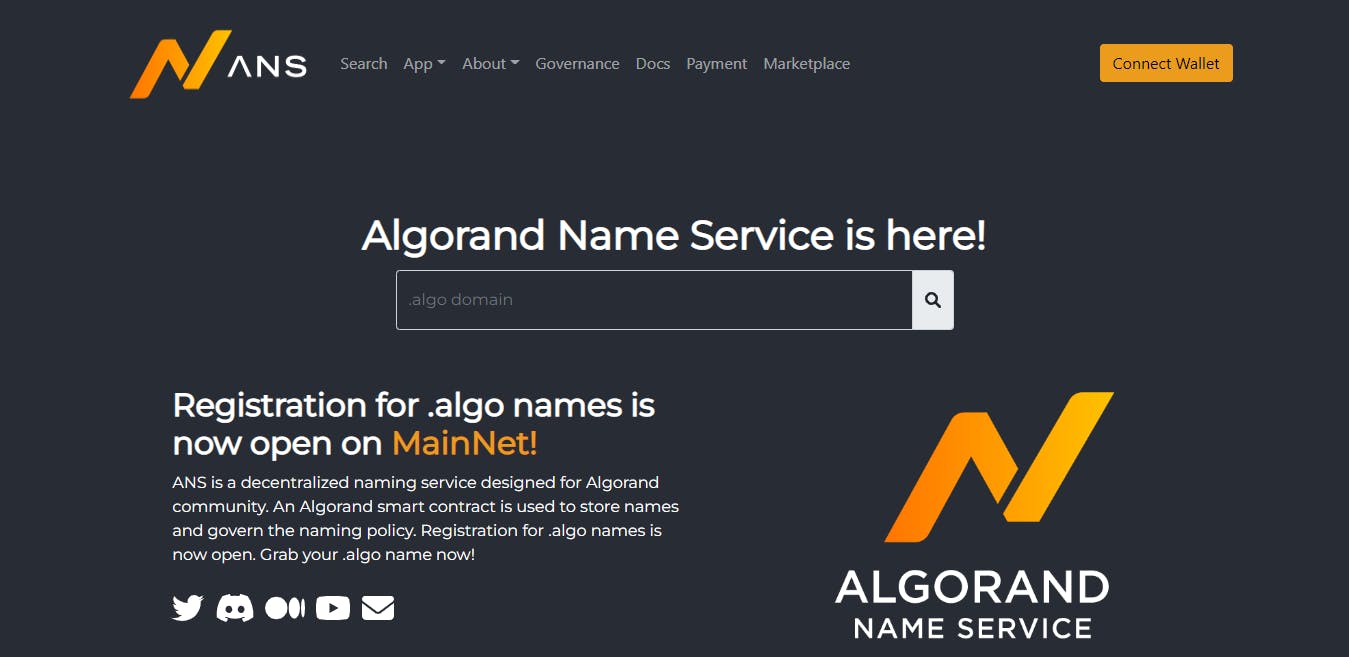
6. Terra Name Service (TNS)
The Terra Name Service (TNS) is a web3 domain on the Terra blockchain network used to build a reputable on-chain profile.
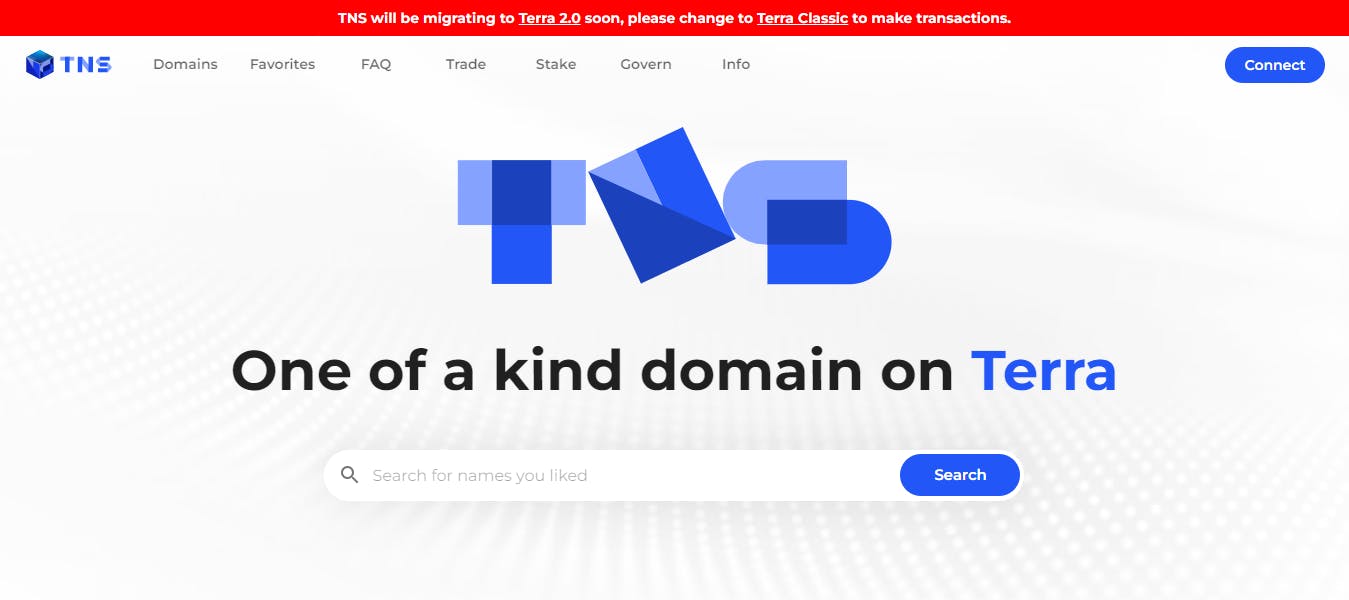
7. Nom Space
Nom Space is a web3 domain name resolution service powered by Celo. It offers the multichain (.nom) domain extension to wallet addresses on Celo, Fantom, Avalanche, and Polygon blockchain networks.
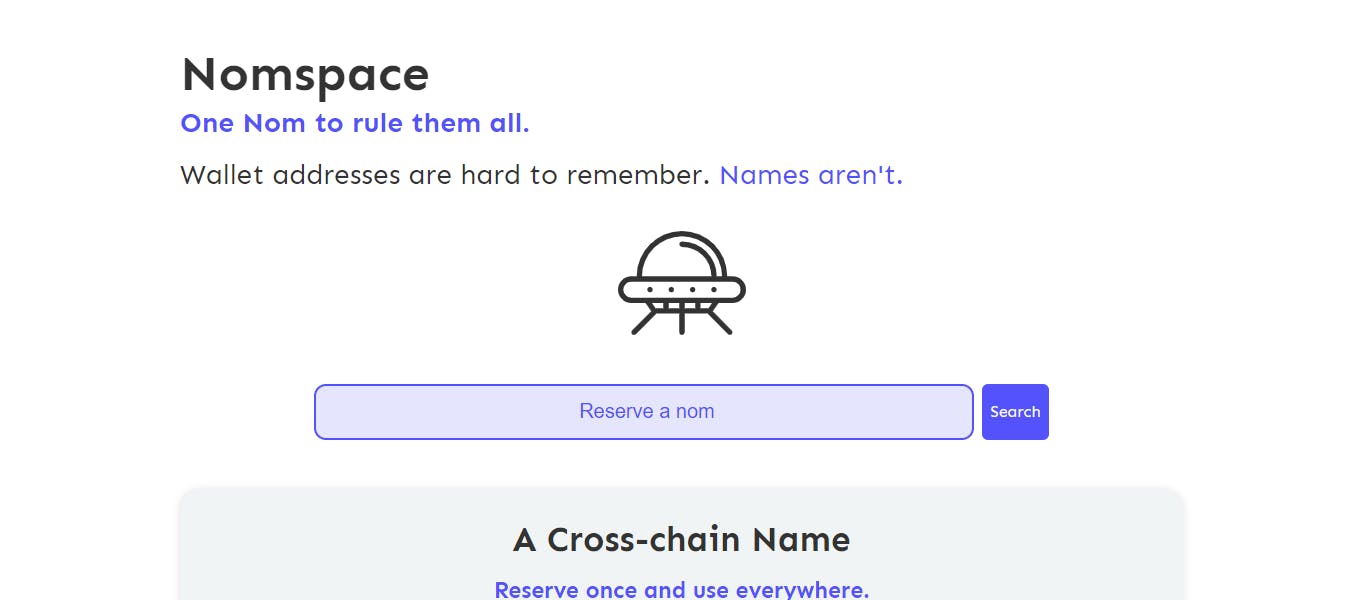
8. Space ID (SID)
Space ID is a universal identifier and name service network that connects people, information, and assets across all blockchains and apps. They are building the first version of SPACE ID for the Binance Smart Chain .bnb domain.
With the SpaceID domain, you can build a brand, and represent all your identities and multi-chain addresses in a single unique domain name.
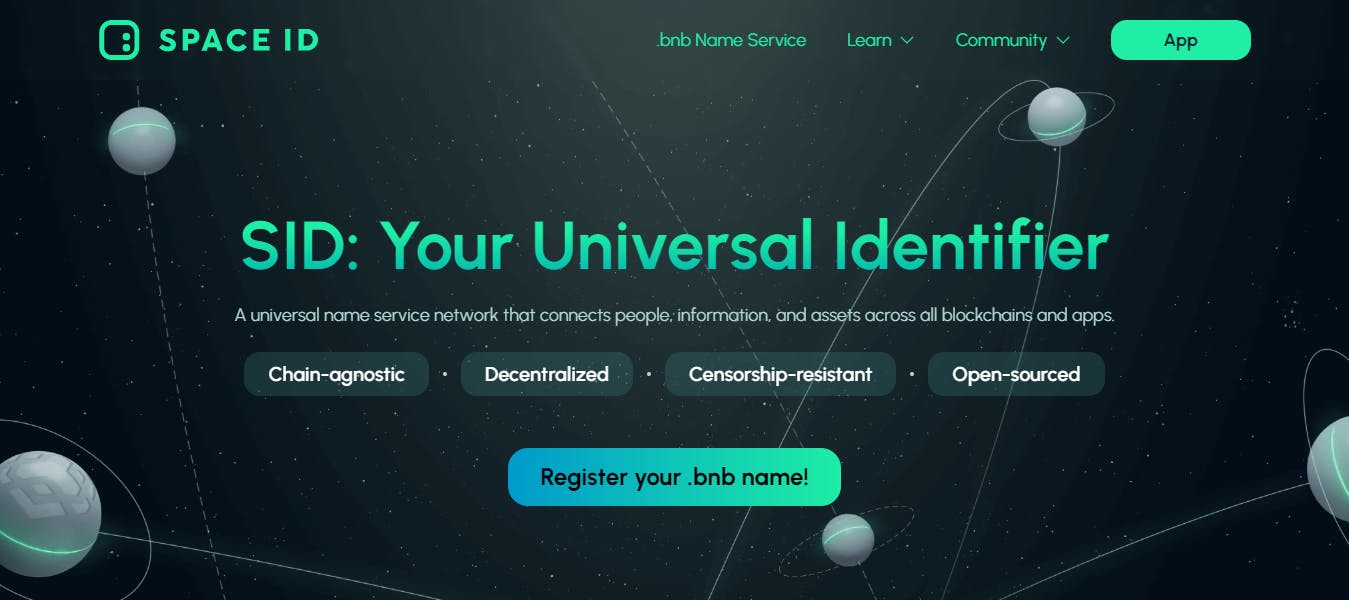
9. Internet Computer Name Service(ICNS)
Internet Computer Name Service is built on the Internet Computer (IC) that maps human-readable names to machine-readable crypto addresses and other customized user metadata to encourage easy participation in the IC ecosystem. The Wrapped Internet Computer (WICP) token can be used to claim the ICNS domain.
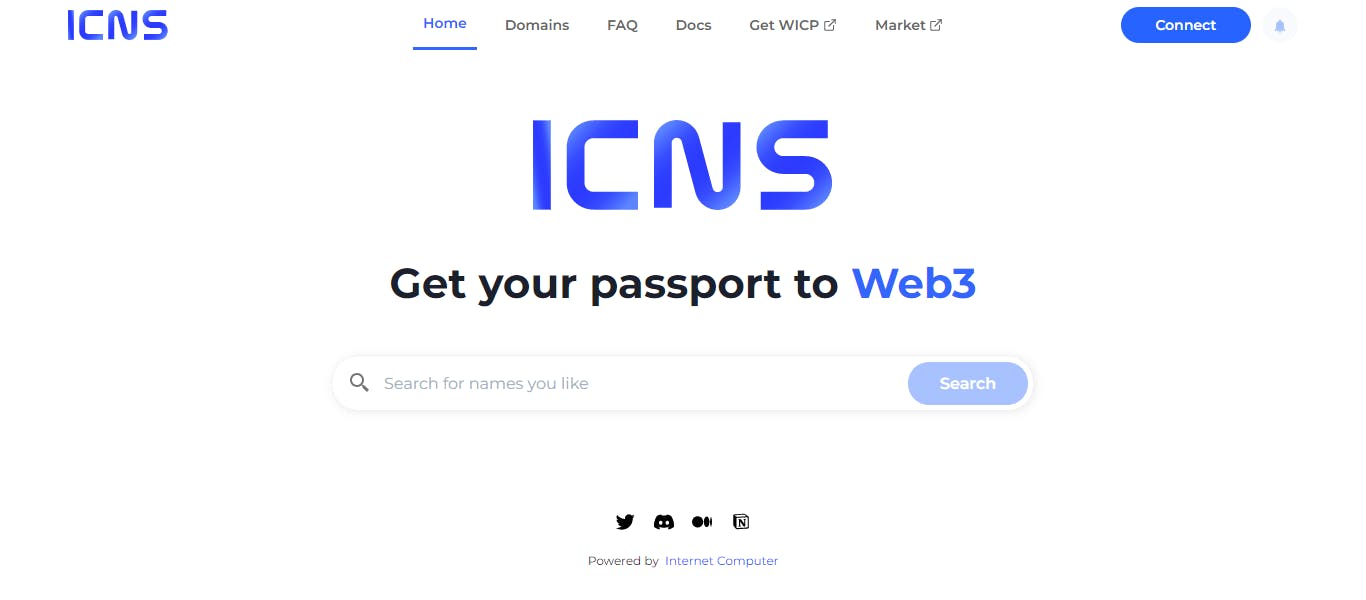
10. Tezos Domains
Tezos Domains is a distributed, open, and extensible naming system using the Tezos blockchain. It translates meaningful and user-friendly alias to their corresponding Tezos address and vice versa.
Registering a domain gives the control of your own personal namespace that can be used to associate your addresses, share your avatar, publish contact information (like your website or social media profiles), create unlimited subdomains, and more.
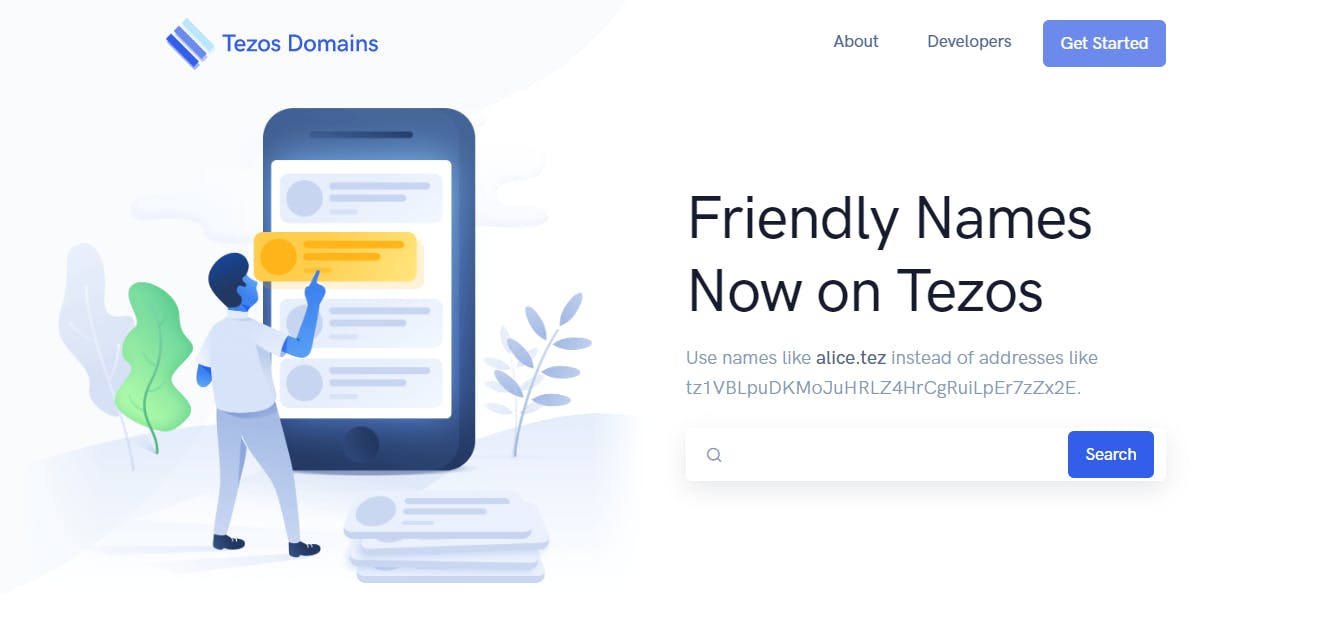
11. Polkadot Name System
Polkadot Name System offers a unique .dot domain name that replaces the meaningless, unreadable, and unmemorable long addresses. It establishes an independent and trusted digital identity. PNS links Web2/Web3 and integrates on-chain and off-chain data. It also enhances the interactive experience of gaming, social, DAO, community governance, etc.
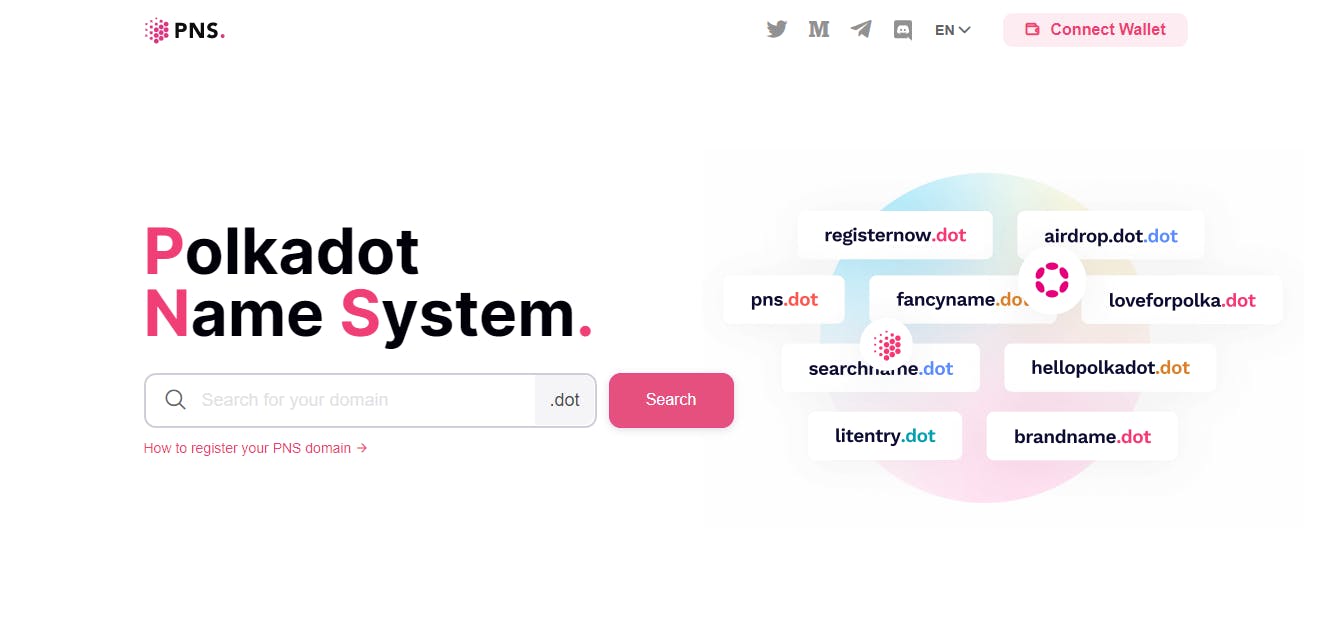
12. Handshake(HNS)
HNS ownership is claimable by Free and Open Source Software contributors directly on-chain to the network. Handshake is a decentralized, permissionless naming protocol where every peer is validating and in charge of managing the root DNS naming zone with the goal of creating an alternative to existing Certificate Authorities and naming systems. It aims to experiment with new ways the internet can be more secure, resilient, and socially useful with a peer-to-peer system validated by the network's participants.
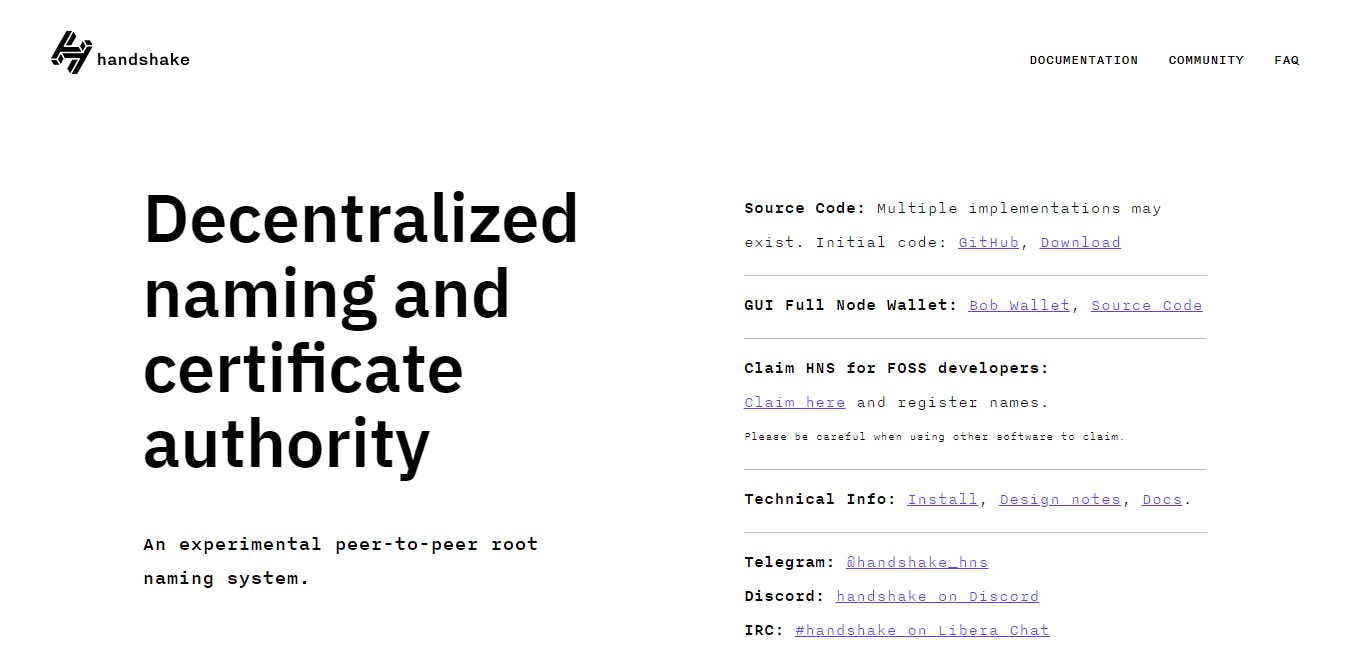
Disclaimer: The information provided is for educational purposes only and should not be treated as investment advice.
Final Thoughts
Traditional Web2 domains are fully controlled by a centralized system that is vulnerable to censorship or hacks. On the other hand, we discuss how web3 domains are more secure and allow users to manage their digital identity or even build a reputation. Registering a web3 domain name requires using a domain registrar that supports the service, like Ethereum Name Service (ENS), Unstoppable Domains, and more.
What are your thoughts on Web3 domains? Please share it with me in the comment section.

